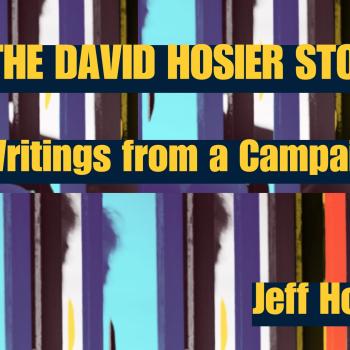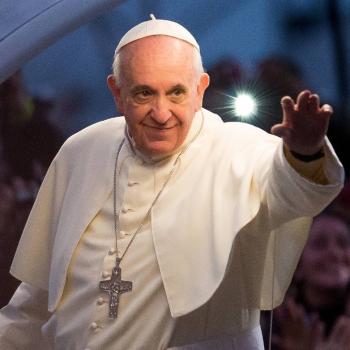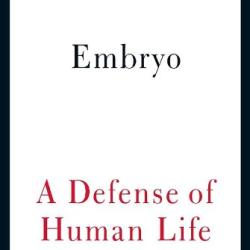Now that we’ve got Catholic candidates on both presidential tickets, partisans on both sides are playing a game of “who’s the worse Catholic?”
There is quite a lot of dishonesty and dangerous hyperbole being thrown around, and that we can condemn as a violation of the eight commandment and set aside. Lying is evil, fomenting murderous violence is evil, and we can’t take seriously any argument that does either.
I recommend you mute anyone in your media feeds who does either.
But that still leaves an important question to contemplate: Does it matter if a Catholic candidate endorses positions contrary to the Catholic faith?
Is it worse to be a Catholic who promotes a given evil than to be a non-Catholic promoting the same evil position? And thus should Catholic candidates be held to a higher standard than a non-Catholic candidate with similar policy positions?
What does the Church say about conscience?
Let’s look at what The Catechism of the Catholic Church has to say:
1790 A human being must always obey the certain judgment of his conscience. If he were deliberately to act against it, he would condemn himself. Yet it can happen that moral conscience remains in ignorance and makes erroneous judgments about acts to be performed or already committed.
1791 This ignorance can often be imputed to personal responsibility. This is the case when a man “takes little trouble to find out what is true and good, or when conscience is by degrees almost blinded through the habit of committing sin.”59 In such cases, the person is culpable for the evil he commits.
1792 Ignorance of Christ and his Gospel, bad example given by others, enslavement to one’s passions, assertion of a mistaken notion of autonomy of conscience, rejection of the Church’s authority and her teaching, lack of conversion and of charity: these can be at the source of errors of judgment in moral conduct.
1793 If – on the contrary – the ignorance is invincible, or the moral subject is not responsible for his erroneous judgment, the evil committed by the person cannot be imputed to him. It remains no less an evil, a privation, a disorder. One must therefore work to correct the errors of moral conscience.
What we see is that if we have the opportunity to know right from wrong, and we freely choose to either (a) not learn about what is right or (b) ignore what is right and do otherwise, we condemn ourselves.
This is very serious!
Catholic vs. “Catholic”
Both President Biden and JD Vance make significant claims about their Catholic faith — they aren’t part of the vast numbers of Americans raised with a nominally Catholic identification of some kind, but who make no pretense of adhering to the Catholic faith at this time.
Both candidates consider their Catholicism essential to who they are, what they believe, and how they will govern.
Thus, per their own public statements, they are obliged to learn what the Catholic faith teaches and do their best to follow that faith.
We should therefore expect both candidates to specifically look to the Church in forming their consciences on policy positions.
Ignorance vs. Self-Deception
Thus when we study the opinions of Biden and Vance, we do need to study them in light of what the Catholic Church teaches. Why? Because it tells us about their integrity as persons.
Think about it:
- You would hold a mathematician to a much higher standard in questions about math than you would someone who admitted they barely got through their high school math classes.
- You should hold your doctor to a higher standard in the practice of medicine than you would expect from your next door neighbor with no medical training.
- The whole reason you call in an electrician to figure out your wiring problems is because someone with that expertise should know better how to handle the problem.
Now merely being Catholic isn’t the same as having advanced training in theology. But to be a Catholic who is campaigning to make significant moral decisions on behalf of an entire nation does mean that you are both willing and able to find out some basic facts about what moral behavior might be.
Don’t have time to read Rerum Novarum? Okay, well you have time to call your local bishop or pastor and find out a few basic things about just wages and employment law.
Not smart enough to figure out how basic aspects of the Catholic faith might apply to given legislation or foreign policy decisions? Perhaps you are out of your depth running for office.
Clergy are held to the highest standards!
So absolutely, it is entirely reasonable for voters to evaluate how well a given candidate adheres to the faith he claims to profess. That’s a simple measure of your integrity as a human being. Are you lying to yourself? Are you lying to us?
We’d like to know.
But as the examples from expertise make clear, there is one category of public persons requiring even graver scrutiny than candidates for public office: Our clergy who have authority as pastors and preachers of the Gospel.
It is a serious sin for, say, Barak Obama to support abortion (as he did during his presidency).
It is a more serious sin for President Biden to support abortion (as he did and at last check does), because by his own admission he should know better.
It is even more serious for President Biden’s lawful pastors in the Catholic Church to excuse (or even condone?) by their silence the president’s persistent, public stance promoting abortion. Those four specifically would be his bishops and parish pastors at home in Delaware and at his official residence in Washington.
And likewise on other issues, and likewise with Vance in any area where the VP candidate’s publicly stated positions are contrary to the Catholic faith.
Is a bad Catholic the worse thing?
All this doesn’t mean that if a Catholic candidate is guilty of acting in bad faith towards his own religion that therefore he is the worst possible candidate. He might or might not be.
Likewise, if two bad Catholics are on offer, one still might be less bad than the other — perhaps even significantly so.
It would be nice to have genuinely good candidates, rather than playing a game of “Who is less bad?” But given the dubious slate on offer by the major parties this year, spiritual integrity is only one factor in a whole array of attributes we must weight against each other in deciding how to vote.
But yes, spiritual integrity is in fact an aspect of each candidate’s character that deserves legitimate scrutiny.
Related:
- Since he is the lesser known of the two, here is JD Vance’s essay in The Lamp about his own conversion.
- “What is Scandal” on Nancy Pelosi and excommunication
- “How to Treat Gentiles and Tax Collectors” on the Church’s response to politicians and others who go astray from the faith
Image: Racoon looking out of a garbage can, from Wikimedia, CC 4.0. Yes, this is a metaphor for how I feel about this coming election.



















